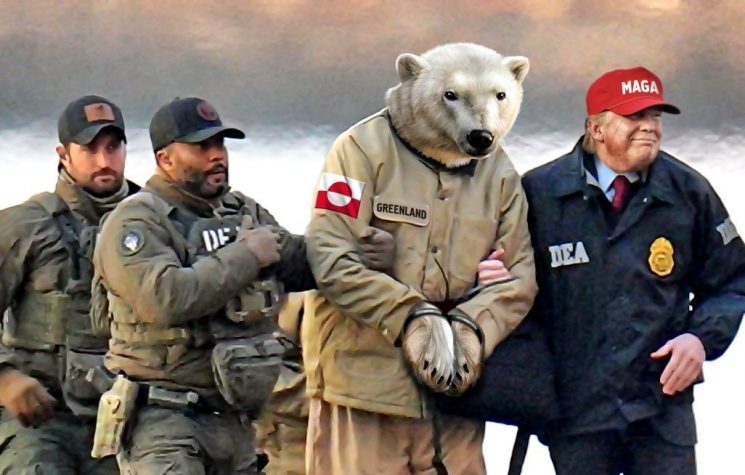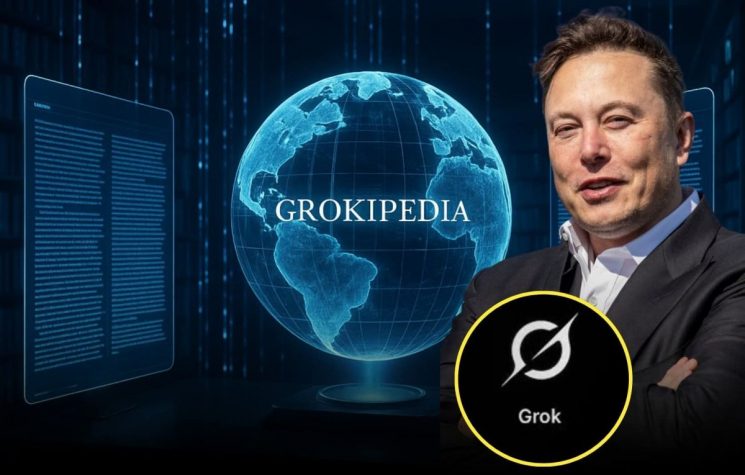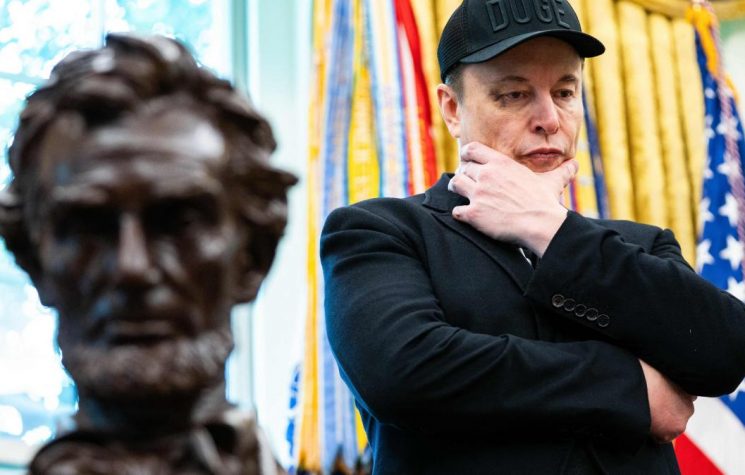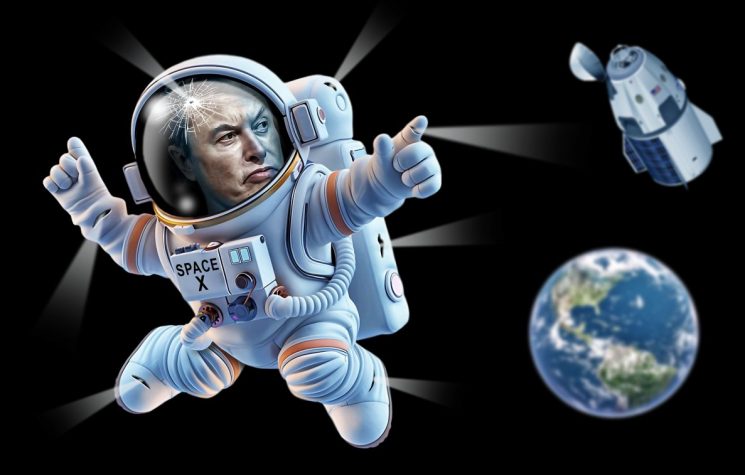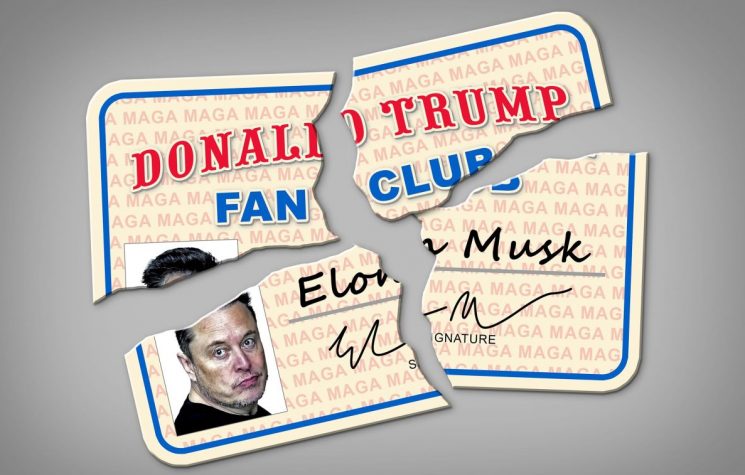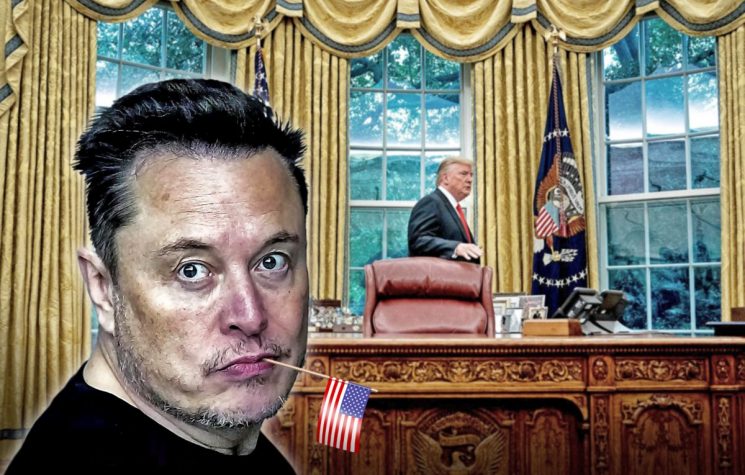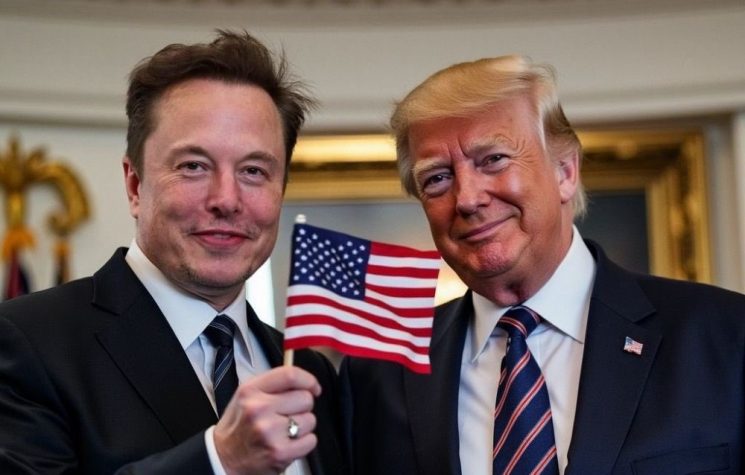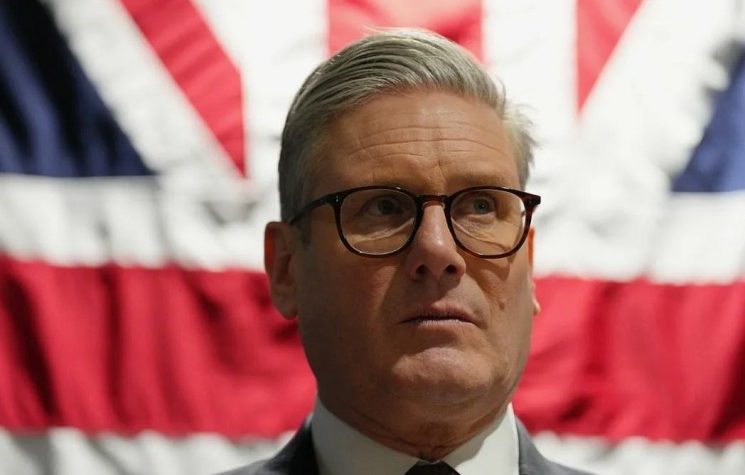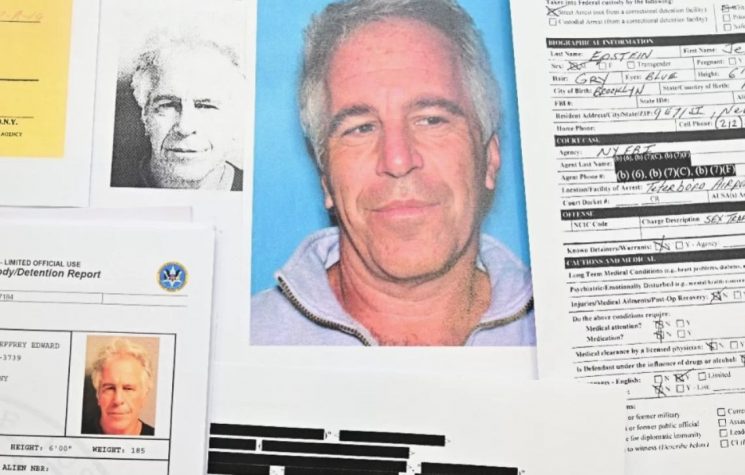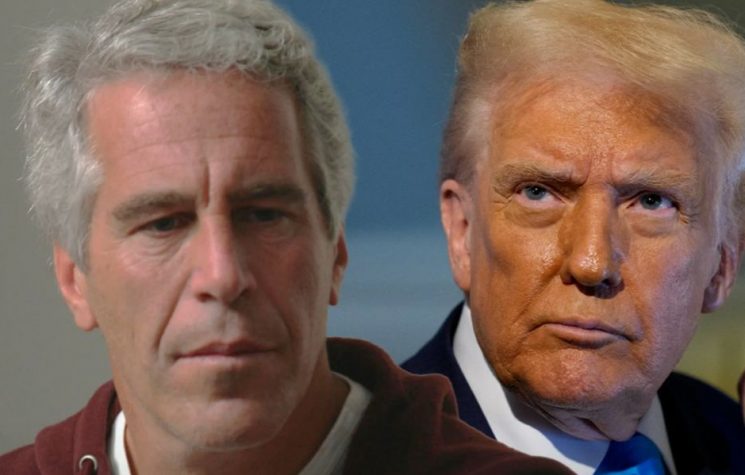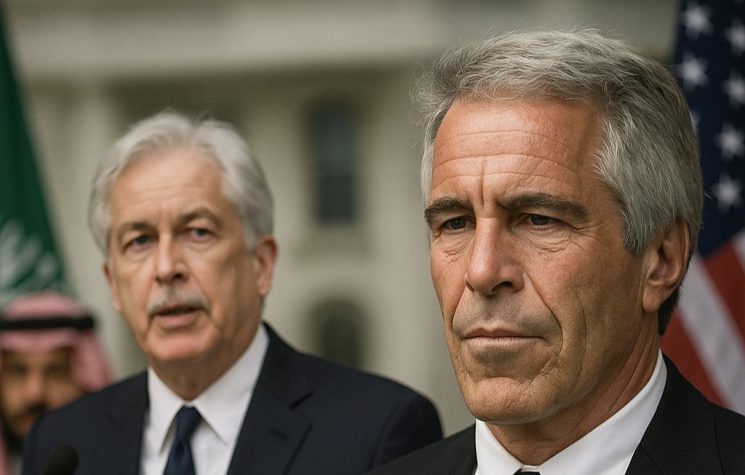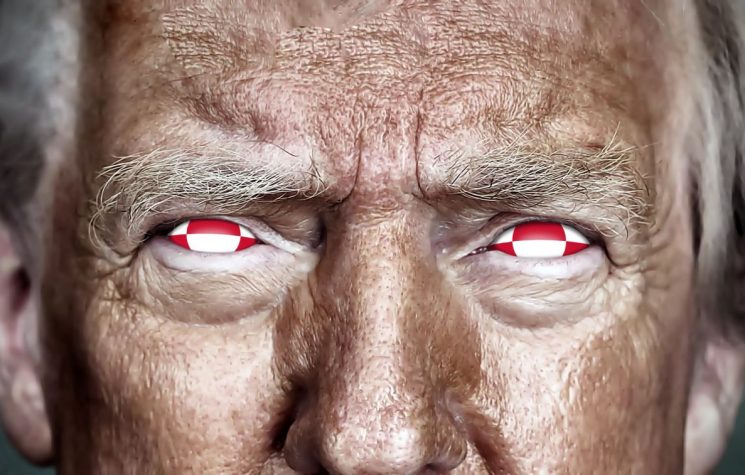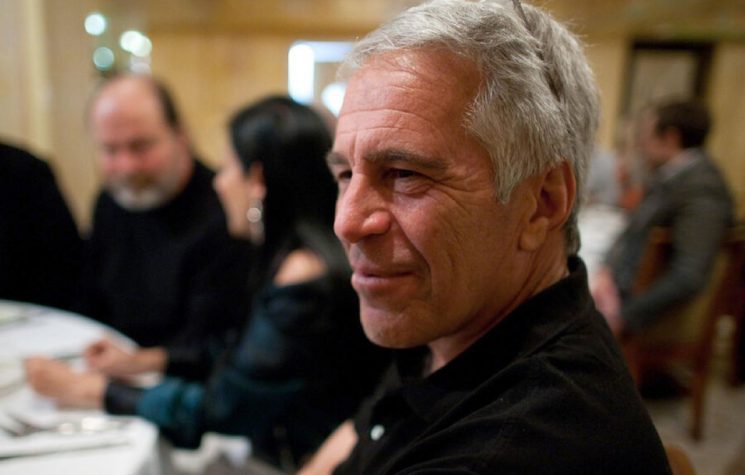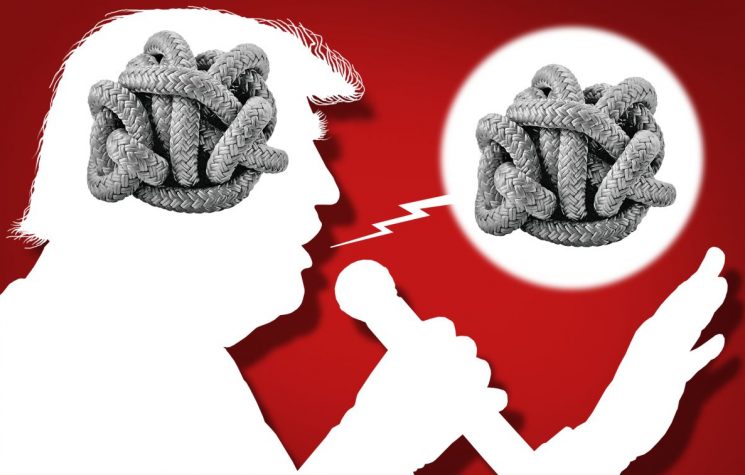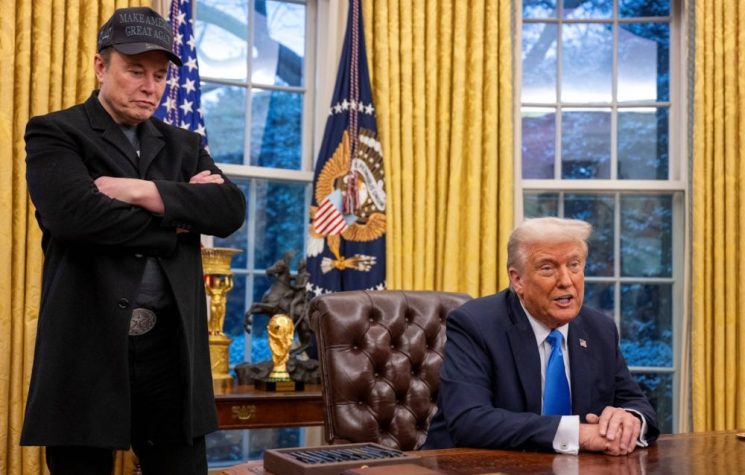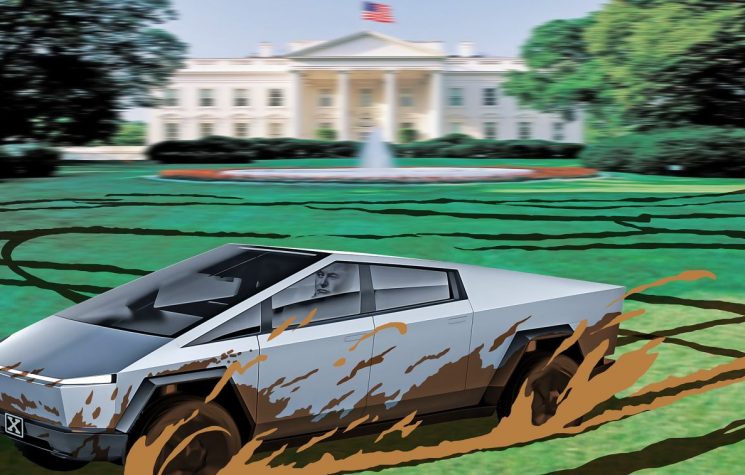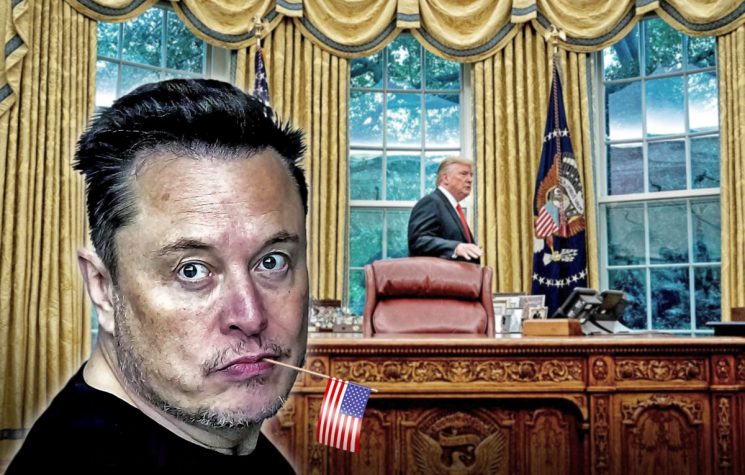Nothing has changed in the last 70 years. Only that GM has given way to Tesla.
Contact us: info@strategic-culture.su
The United States is experiencing “a dangerous concentration of power in the hands of a few super-rich people,” that is, an “oligarchy.” This is how President Joe Biden addressed American citizens in his farewell speech from the White House, broadcast on national television. Indirectly referring to the billionaires linked to Donald Trump, he declared that their “extreme wealth, power, and influence” are “literal” threats to democracy.
Since all the misfortunes that have been occurring in the U.S. and around the world are attributed exclusively to the far right, it is hidden, however, that this concentration of power and wealth has been going on for a long time and is nothing new. The conclusion of the bourgeois revolution with the unification of the country after the civil war meant the transition of power from the agrarian bourgeoisie, linked to the Democratic Party, to the industrial bourgeoisie, represented by the Republican Party. Already at that time, the great capitalist monopolies that would control U.S. politics to this day were being formed.
“The Rockefellers in oil, the Carnegies and Fricks in steel, the Morgans in banking, or the Harrimans and Hills in railroads—these were the men who had an influential voice in the Republican Party, and also in the Democratic Party, from 1865 to 1901,” wrote historian Arthur S. Link. “They financed political campaigns and received government rewards in the form of concessions for public services, land, tax exemptions, or tariff protections.”
After World War II—in which the U.S. entry was a necessity for these monopolies—the concentration of political power by the monopolies was consolidated. When he came to power in 1953, Dwight Eisenhower filled his cabinet with representatives of the big companies: Charles Wilson, of General Motors, for the Pentagon; George Humphrey, of M.A. Hanna Steel Company, for the Treasury; Sinclair Weeks, an industrialist, for Commerce; Arthur Summerfield, from the automobile industry, for the Post and Telegraph Office; Ezra Taft Benson, from the agricultural markets, for Agriculture; and the wealthy corporate lawyer John Foster Dulles for the State Department. Together with Douglas McKay, from the Interior, and Herbert Brownell, from Justice, they formed a cabinet that was described by the New Republic as having “eight millionaires and a fireman.” The fireman was Secretary of Labor Martin Durkin, a union leader from the American Firemen and Plumbers Association. A few months later, Durkin would be replaced by the big retailer James Mitchell, and the Department of Health, Education, and Welfare would be created under the responsibility of Oveta Culp Hobby, wife of the communications entrepreneur William P. Hobby.
Perhaps one of the governments most famous for its relationship with the “oligarchy,” as Biden put it, was that of George W. Bush. As an oil businessman himself (in addition to his contacts with other areas, such as arms), his vice president was Dick Cheney (an oil businessman), whose wife worked on the board of the arms giant Lockheed. Donald Rumsfeld, who was his Secretary of Defense (and also Gerald Ford’s), had businesses in the pharmaceutical and electronics industries, and Secretary of State Condoleezza Rice was an advisor to Chevron. It is no surprise that many of the companies directly linked to the Bush Jr. administration were among the major beneficiaries of the invasion of Iraq.
The great businessman of the Trump administration
Donald Trump returns to the United States government maintaining this tradition. A tycoon with businesses in various sectors (from real estate to entertainment), he has appointed major businesspersons to key positions (Scott Bessent for Treasury; Linda McMahon for Education; Howard Lutnick for Commerce; Chris Wright for Energy; Doug Burgum for Interior; Susi Willes to head the White House and Steven Witkoff for the Middle East). But the big name will not occupy an official position: Elon Musk will be in charge of the Department of Government Efficiency, to reduce public spending by a third.
The richest man in the world and the largest donor to Trump’s campaign (220 million dollars), Musk has become so close to the new president that he has already become a target of the most radical MAGA ideologues, such as Steve Bannon, who accused him of betraying Trumpism by defending the possibility of increasing the immigration of skilled workers to work in his companies, receiving lower wages and filling the vacancies of American workers. The technology billionaire also upset the traditional sectors of the military-industrial complex when he proposed to the government that Lockheed’s arms contracts be replaced by drones developed in Silicon Valley.
In fact, Musk will not have contracts with the U.S. government after Trump’s second term. Since Joe Biden, SpaceX has been building a network of spy satellites for intelligence agencies and the Pentagon. Outside the United States, Musk began investing in the extraction of Argentine lithium to supply Tesla. Since then, he has also become friends with Javier Milei and supported his election, apparently in exchange for Argentine lithium concessions. In a TV show after being elected, Milei revealed that Musk was “extremely interested in Argentine lithium”, assuring that he would change the country’s legislation to guarantee “a legal framework that respects the property rights” of the businessman and other American companies. Shortly after, Milei also announced the “deregulation of satellite internet services to allow the entry of companies like Starlink”.
This is certainly one of the reasons for Trump’s rapprochement with Milei. A few years ago, Musk also revealed that he had supported the 2019 coup in Bolivia, which has the world’s largest lithium reserves. “We will coup whoever we want,” he posted at the time. This history, combined with recent tensions with President Lula and the Brazilian Supreme Court, raises alarm bells about the imminent possibility of Brazil being one of the next in line for the coups mentioned by Musk. Bolsonaro’s supporters are desperate to return to government and replace the Chinese automakers that recently arrived in the country with Tesla, as well as to ensure that the Chinese company SpaceSail, which signed contracts with Telebrás, is eliminated from the competition with Starlink.
Judging by his frequent statements that go far beyond the area of spending cuts, for which Musk was appointed by Trump, the owner of X both influences and expresses the opinion of the president himself and sectors of his new government. Even wealthy countries such as Canada, Germany and the United Kingdom have been the target of Musk’s greed, as he supports the annexation of the former and the rise of the far right in the governments of the other two. All these cases, both in the Americas and in Europe, reveal an aggressive interventionist policy – a tendency of part of the new Trump administration, divided between isolationists and conservative “internationalists”. It is logical that this aggressiveness is not motivated by any ideology, but rather by the need for profits of Musk and other businessmen in the Trump administration.
Charles Wilson, a large shareholder in General Motors who was appointed Secretary of Defense by Eisenhower, declared during his Senate hearing in 1953: “What is good for the country is also good for General Motors and vice versa.” In this sense, nothing has changed in the last 70 years. Only that GM has given way to Tesla.















